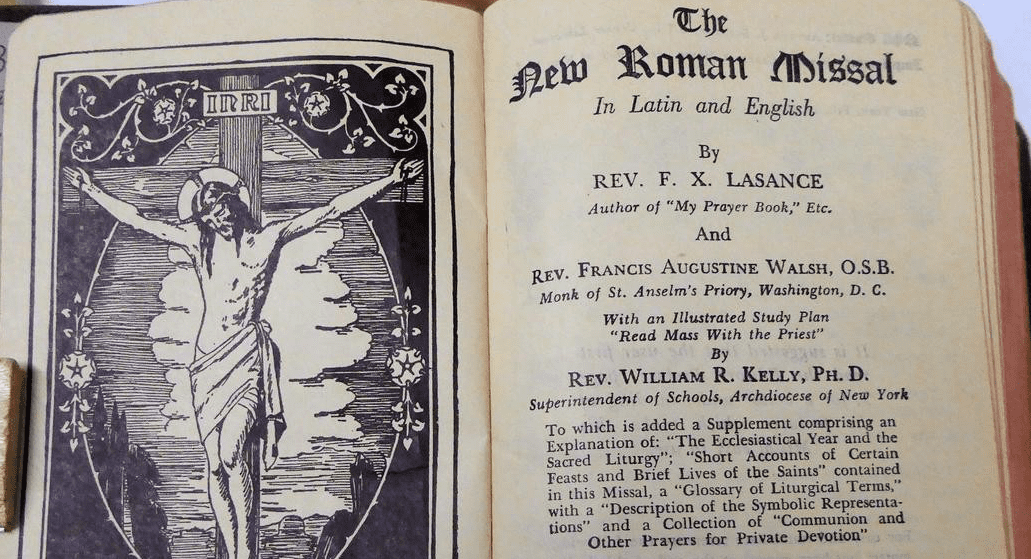Online Edition – September 2005
Vol. XI, No. 6
Translation Update
Vox Clara Committee Reviews ICEL Draft; Issues Manual for Missal Translations
by Helen Hull Hitchcock
A translation manual to guide the translation of English-language liturgical texts was presented to and approved by the Holy See at the July 5-7 meeting of Vox Clara, the committee of bishops appointed in 2002 to provide translation guidance for English-language liturgical texts.
The document, called Ratio Translationis for the English Language, was sent in late July to bishops’ conferences and to the International Commission on English in the Liturgy (ICEL).
The idea for the Ratio translationis, as an aid in translating Latin texts into modern languages, was established by Liturgiam authenticam (no. 9). This latest version is a revision of an earlier draft by the Vox Clara committee, and was approved by the Congregation for Divine Worship and the Discipline of the Sacraments (CDW).
In his forward to the Ratio translationis, Cardinal Francis Arinze, Prefect of the CDW, described the origin and purpose of the translation manual. He said that the Ratio “represents a new venture whose nature will vary from one language to the next and whose precise form will undoubtedly mature over the years”. It is an “illustrative document”, he said, “designed to spell out the practical implications of current requirements”. He noted that the “availability of a basic guide in the English language will be of undoubted help to the bishops and to those experts they call to assist them in such a pastorally crucial, technically difficult and time consuming task”. (Experts would include translators from the “mixed commission”, ICEL.)
Cardinal Arinze also said that the bishops of the Vox Clara committee, also, “are assisted by a range of experts” in their task of “finding ways of ensuring a rapid and sure-handed implementation of the Instruction [Liturgiam authenticam] in the English-speaking world”.
The Ratio consists of three parts, as described in the BCL Newsletter, July 2005.
Part one, “Presuppositions for the Authentic Translation of Liturgical Texts in the Roman Rite”, covers the meaning of liturgical language, the main characteristics of the language of the Roman Rite, including its patristic origins, and the gradual organic development of a “liturgical vernacular”.
The second section, “Principles of Translation for the Liturgy of the Roman Rite” is divided into sub-sections, “Identity and Unitary Expression of the Roman Rite”, “Adaptations to the Qualities and Exigencies of the Vernacular Language”, and the “Oral-Aural-Mnemonic Dimensions of Translation”.
The last section, “Application of the Principles of Translation to the English Language”, concerns style, syntax, genre, person, number and gender.
“The challenge of translation is a demanding exercise”, wrote Archbishop Alfred Hughes of New Orleans, a member of Vox Clara, in a report on the meeting (Clarion Herald, July 27).
The work, you may imagine, is slow and tedious. But it is important that we move beyond the hastily developed translations adopted in 1975. Those translations paraphrased much of the Latin originals and, in the process, lost some of the richness of the Roman Liturgy. Thus, variety was too often favored over consistency. Creativity sometimes trumped fidelity. Superficial contemporary expression sometimes robbed the prayer text of its depth. As a result, the truly sacred language of the Roman Liturgy and the rich doctrinal content became lost in an English rendition which was more secular and less profound. This has impacted the sense of awe and mystery which the Liturgy should always engender in participants.
The Church has always regarded the Liturgy as formative of Catholic faith and life. There is a Latin maxim which expresses this truth: the form of prayer impacts the faith of the people. This is why it is so important to take the time to develop a faithful, sacred and poetic translation.
Archbishop Hughes said that the Vox Clara committee “invested a significant amount of time” in developing the Ratio translationis, and that the Committee reviewed the draft ICEL draft translations, and presented their review to the CDW at the end of the July meeting.
The Vox Clara bishops had begun this review of ICEL’s work earlier this year. At their March 10 meeting, the Committee had examined the latest revision of ICEL’s translation, noting “impressive improvements”, and that the forthcoming Ratio translationis would bring ICEL translators “significant assistance”.
“The timely completion of an English-language edition of the Missale Romanum remains the highest priority and the members urged that all possible resources should be devoted to the expeditions completion of a vernacular edition [of the Missal] which is at once precise in its rendering of the Latin texts and appropriate for the celebration of the Holy Eucharist in English”, the Committee’s March 10 press release said. The Vox Clara committee “welcomed a recommendation from ICEL” suggesting “closer coordination between the work of Vox Clara and the mixed commission [ICEL]”.
Vox Clara’s twelve bishop-members represent several English-speaking regions from around the world, and it includes four Americans. The Committee is chaired by Cardinal George Pell, Sydney (Australia). Other officers and members are: Archbishop Oscar Lipscomb, Mobile (USA), First Vice-Chairman; Archbishop Oswald Gracias, Agra (India), Second Vice-Chairman; Cardinal Justin Rigali, Philadelphia (USA), Treasurer; Cardinal Cormac Murphy-O’Connor, Westminster (England), Secretary; Cardinal Francis George, Chicago (USA); Archbishop Alfred Hughes, New Orleans (USA); Archbishop Peter Kwasi Sarpong, Kumasi (Ghana); Archbishop Kelvin Felix, Castries (Saint Lucia); Archbishop Terrence Prendergast, Halifax (Canada); Bishop Philip Boyce, Raphoe (Ireland); Bishop Rolando Tria Tirona, Prelate of Infanta (Philippines).
Advisors to the bishops are: Monsignor Gerard McKay (Rome), Abbot Cuthbert Johnson, OSB (England), Reverend Jeremy Driscoll, OSB (USA), The Rev. Mr. Dennis McManus (USA), and Monsignor James Moroney (USA, Executive director of the US Bishops’ Committee on the Liturgy secretariat).
***
*

